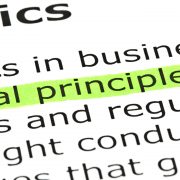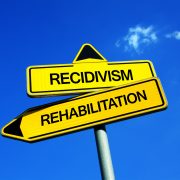Just like the rest of the country, over the last several years Utah entrepreneurs have had to deal with an increasing amount of hurdles when looking to start their own businesses. These barriers to entry have come in the form of occupational licensing.
It has become all too common to hear of individuals who are unable to start a business or who have had their businesses shut down because the state requires costly licenses and useless training before someone is free to be industrious. This has become such a widespread problem that Institute for Justice has committed much of its mission of protecting those who have been victims of the government’s war on entrepreneurship.
But where Utah has had its fair share of anti-business policies, the tides appear to be changing. Over the last couple of years, Utah has been leading the charge for entrepreneurial freedom.
Protecting Home-Based Businesses
As last summer began, Utah was making history by protecting home-based entrepreneurs from the long arm of the state through legislative action.
Connor Boyack, a Utah resident and a longtime advocate for liberty has made a full-time job out of protecting the rights of Utah citizens. As president of the burgeoning Utah think tank, Libertas Institute of Utah, Boyack began running his new nonprofit from his home, while he made plans to grow his operation and find a more suitable location. It was during this time that Boyack was alerted by city officials that he was not allowed to run a business out of his home without the proper permits. Of course, as a nonprofit Boyack was not bringing in any money that was not spent directly on Libertas’ initiatives, but the city regulators didn’t seem to care about that vital detail.
Learning the hard way that you can’t fight city hall, Boyack decided to take a different approach against the burden of occupational licensing: focusing on the children. This was a sympathetic move since over the last several years there has been an epidemic of police shutting down child-run lemonade stands for operating without a license. Working with local legislators to draft what would become Senate Bill 81, Boyack was integral in changing the laws in Utah.
As I wrote previously:
“Senate Bill 81 amends existing laws requiring occupational licenses and permits for certain businesses, specifically those run by minors under the age of 18. However, it also helps adults by demolishing any fees associated with the required permits. True, Utah residents over 18 will still have to obtain the government’s permission before operating a home-based business, but they will no longer be forced to pay exorbitant fees.
In fact, by eliminating the fees associated with home-based occupational licensing, the state of Utah stands to lose about a million dollars in annual revenue previously collected from those looking to run their own businesses out of their home.”
This was a huge step in protecting entrepreneurial freedom, but it only applied to “home-based businesses,” which meant it left a lot of people out. And while the state itself has yet to take any action that would further abolish licensing fees, one city is making huge strides in favor of business freedom.
Open For Business
Last week, the city of Riverton, Utah abolished all fees associated with business licenses. This comes as part of the city’s 2018-2019 fiscal budget and fee schedule, which was discussed in Riverton City Council meeting early last week.
As explained by a local news outlet:
“Mayor Trent Staggs first proposed eliminating the city’s business licensing fees in the budget he presented to the city council on May 1. The move, the first of its kind in Salt Lake County, essentially makes it free to do business in the city.”
Mayor Staggs commented on this bold new plan, saying:
“We understand the value our local businesses provide to our city and our residents. By eliminating the business licensing fee, we want to send a clear message that Riverton is open for business.”
While this doesn’t omit the need for a business license, it does take away the burden of having to pay for the “privilege” of earning a living, which is a great start. Prior to this new plan to abolish licensing fees, business licenses cost business owners $200 annually. By eliminating this fee, it is very likely that Riverton will attract entrepreneurs who are fed up with the licensing fees in other cities around Utah.
Speaking of SB 81, Mayor Staggs said:
“I philosophically agreed with the move by the Utah State Legislature to eliminate business licensing fees for home-based businesses last year. I’m thrilled that we are extending that benefit to our commercial businesses right here in Riverton.”
While the last decade, if not longer, has been defined by red tape and regulatory hurdles in the business sector, it appears that we are on the cusp of something big in this country. The freedom to earn a living is what allows individuals to be self-reliant and prosperous. Thankfully, the winds of change are upon us and it appears that country is moving in the right direction when it comes to entrepreneurial freedom.













